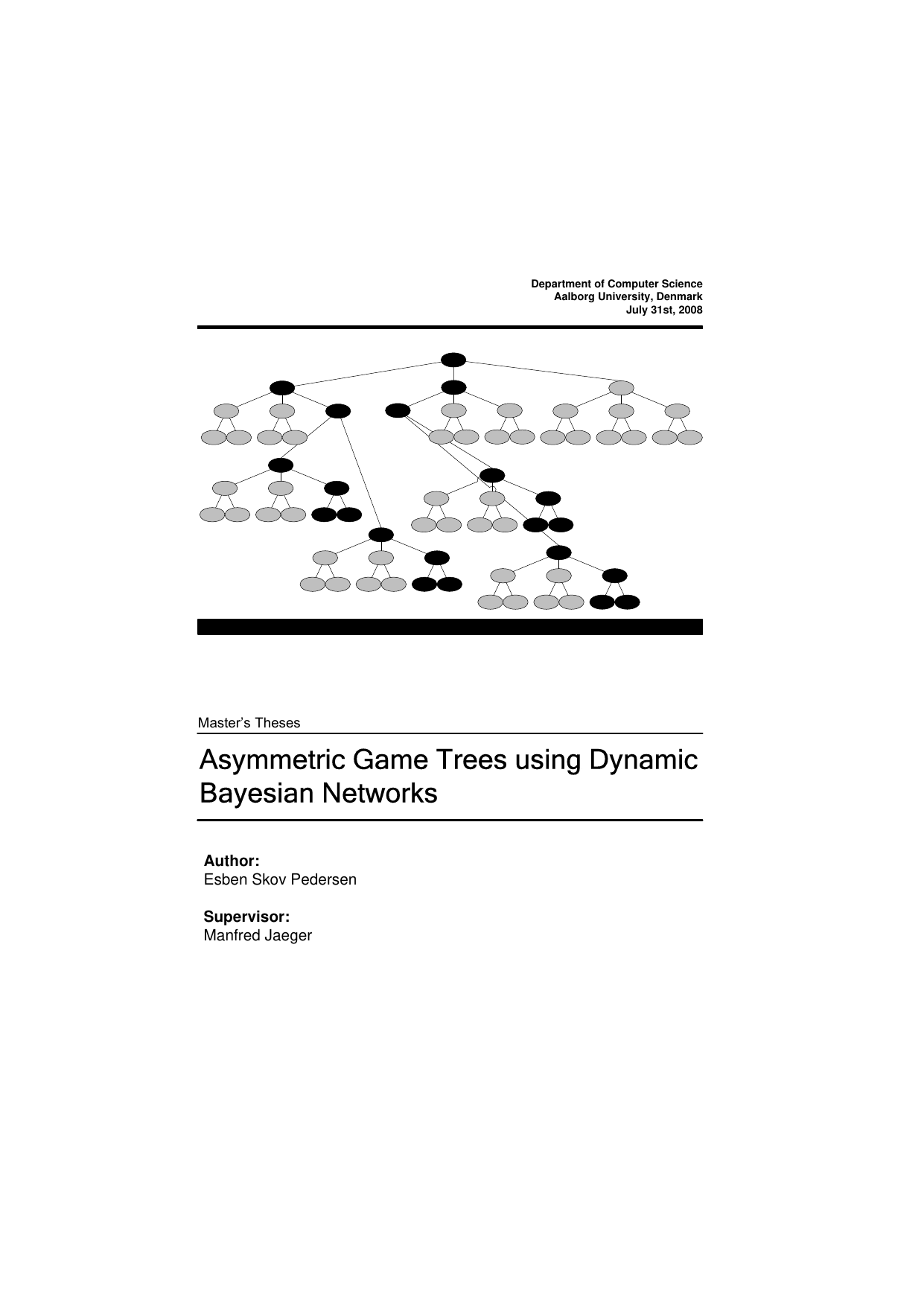
Asymmetric Game Tree using a Dynamic Bayesian Network
Translated title
Author
Term
4. term
Education
Publication year
2008
Submitted on
2012-02-14
Abstract
This project we improve mini max search by rediciting which move the opponent is most likely to take. This prediction is performed by using a dynamic bayesian network. This network has nodes that represents a number of abstract features extracted from the game. The network is trained sing EM-learning based on data from a number of comptuter players playing against each other. These computer players are defined as the weighted sum of the features mentioned before. These weights are found using a genetic approach. The system is able to improve performance of the worst strategies without increasing the search space.
Documents
